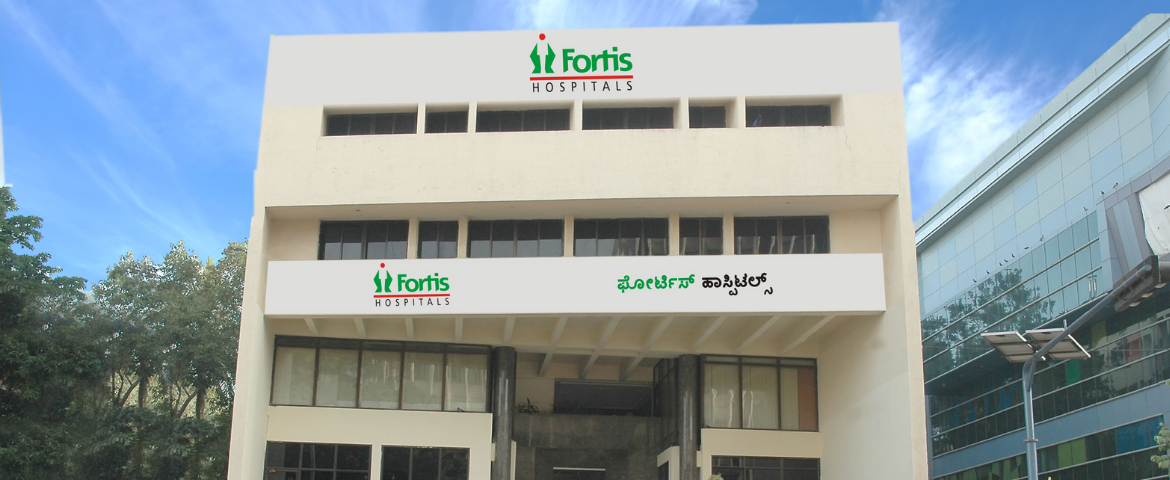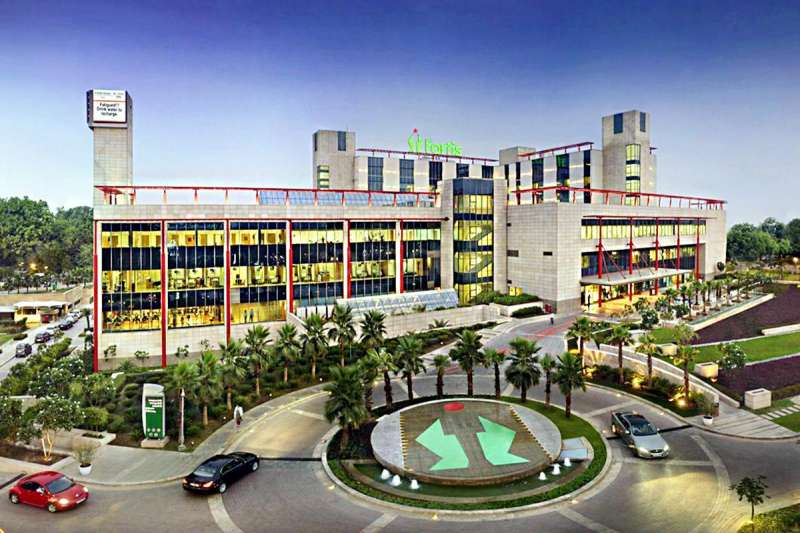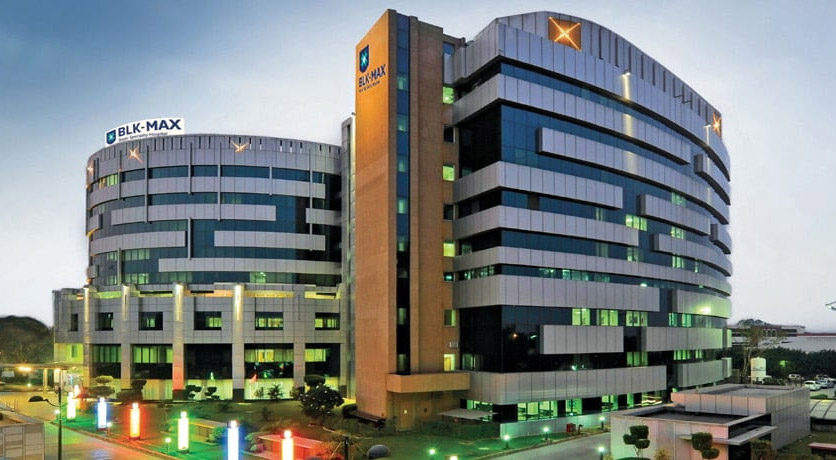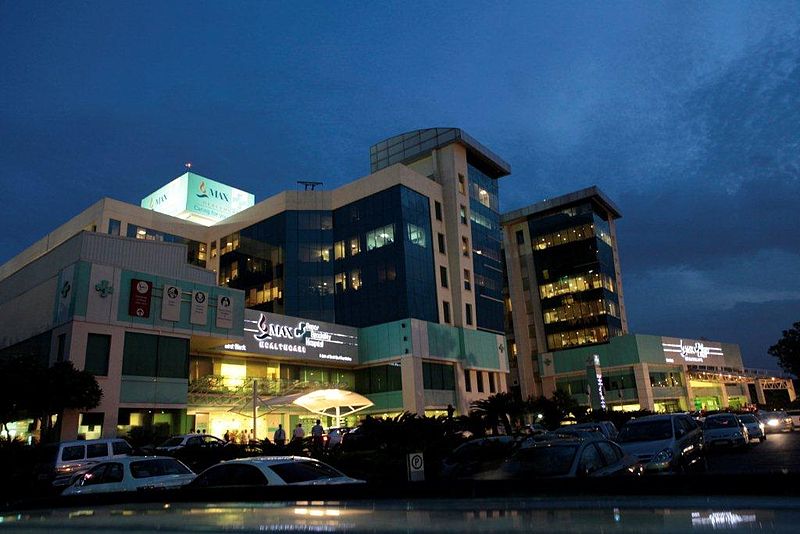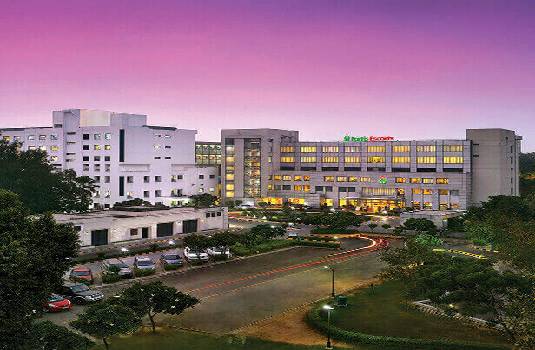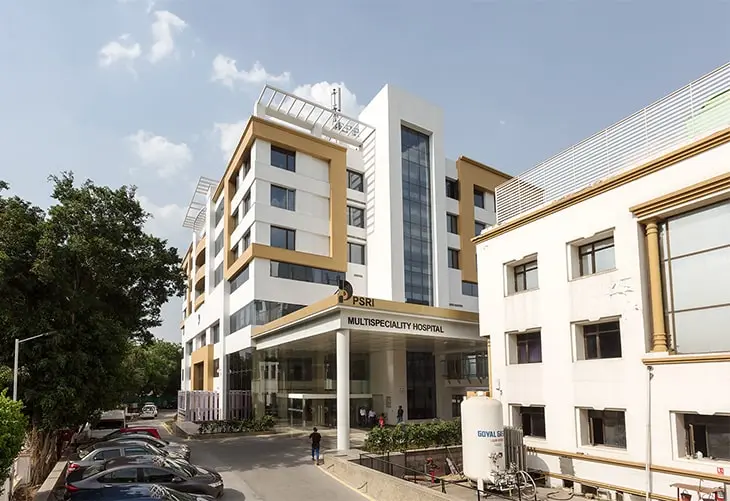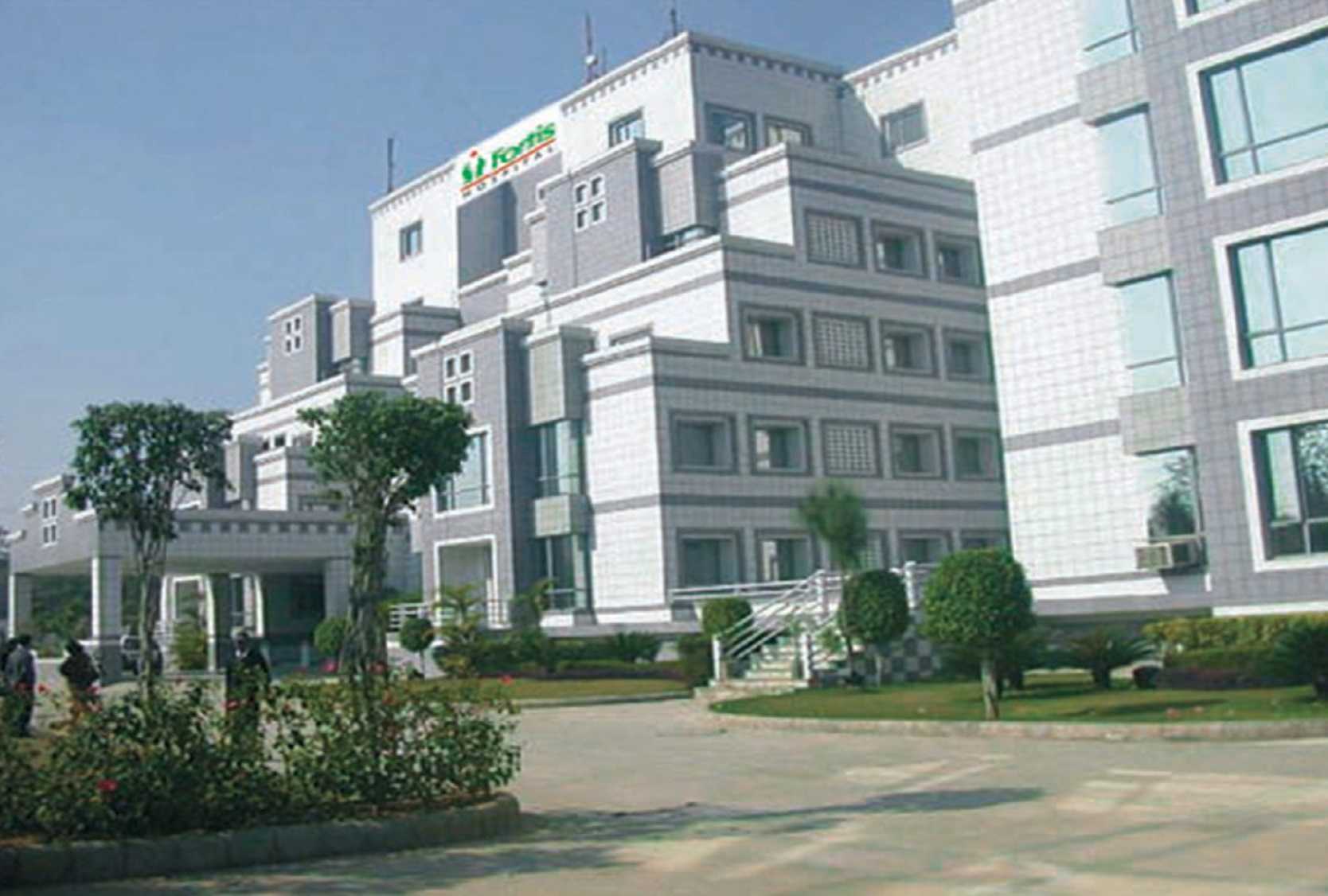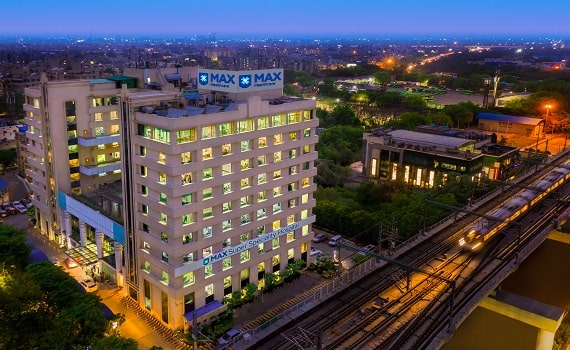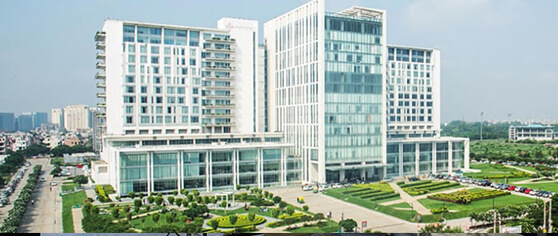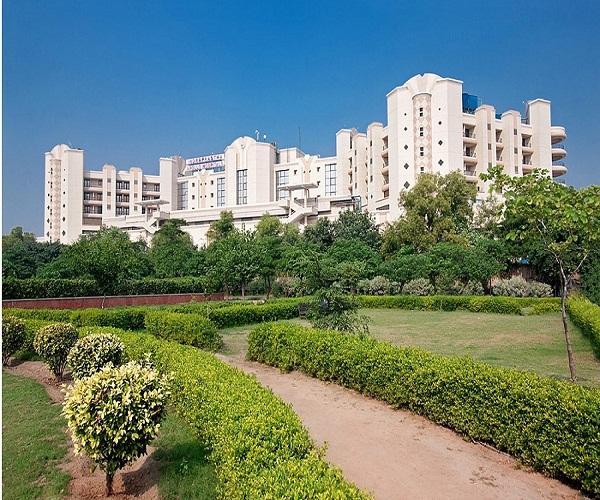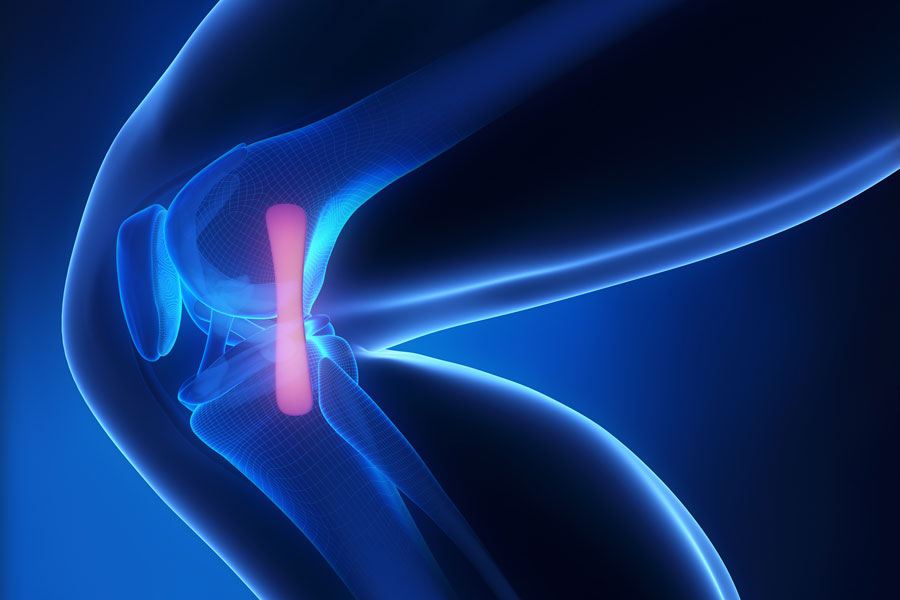ACL Surgery cost in India
The cost of ACL or PCL or MCL Reconstruction
Surgery in India ranges from USD 4200 to USD 8000
ACL or PCL or MCL Reconstruction Surgery:
The anterior cruciate ligament (ACL), posterior cruciate ligament (PCL), medial collateral ligament (MCL), and lateral collateral ligament (LCL) are the four primary ligaments present in the knee, and complex knee ligament reconstruction is the surgical procedure of repairing injuries in one or more of them (LCL).
ACL or PCL or MCL Reconstruction Surgery:
The anterior cruciate ligament (ACL), posterior cruciate ligament (PCL), medial collateral ligament (MCL), and lateral collateral ligament (LCL) are the four primary ligaments present in the knee, and complex knee ligament reconstruction is the surgical procedure of repairing injuries in one or more of them (LCL).
Disease Overview:
ACL & MCL Injury
Bones, ligaments, tendons, and cartilage make up your knees. The medial collateral ligament (MCL) is an eight to ten centimeter-long ligament on the inside side of your knee. It joins the thigh bone (femur) to the shin bone (tibia) (tibia). Your MCL also gives your knee joint strength and stability. It's one of your knee's four major ligaments. The following are the other three main ligaments:
- The anterior cruciate ligament (ACL) is a ligament that connects the knee (ACL).
- The lateral collateral ligament (LCL) is a ligament that connects the (LCL).
- The posterior cruciate ligament (PCL) is a ligament that connects the knee (PCL).
"Towards the middle or Centre" is what the word "medial" denotes. The term "collateral" refers to a ligament that is located on one side of a joint.
The medial collateral ligament is called for the fact that it is placed on the inside side of your knee (closer to your body's "middle line") and on the side of your knee joint. A rupture or sprain of the anterior cruciate ligament (ACL) — one of the strong bands of tissue that connects your thigh bone (femur) to your shinbone — is known as an ACL injury (tibia). ACL injuries are most frequent in sports like soccer, basketball, football, and downhill skiing, which entail rapid pauses or changes in direction, jumping, and landing. When an ACL damage occurs, many patients hear a pop or experience a "popping" feeling in their knee. It's possible that your knee will expand, become unstable, and become too painful to bear weight on.
An MCL tear occurs when the medial collateral ligament, a key ligament on the inner side of your knee, is torn. The tear might be partial (just a few ligament fibres are destroyed) or full (the entire ligament is ripped) (the ligament is torn into two pieces). A ligament is a strong band of tissue that links two bones or keeps organs in place.
Your MCL tear will be classified as one of three grades by your healthcare provider:
Grade 1: A grade 1 MCL tear is a minor rip in which less than 10% of the ligament fibres are destroyed yet the knee remains stable. If you have a grade 1 tear, you will most likely experience discomfort and minor pain.
Grade 2: A grade 2 MCL tear is a significant rip in which portion of your MCL is damaged — generally the surface area of your MCL. When you move your knee by hand, it will most likely be loose, and you will most likely experience extreme pain and soreness along the inside side of your knee.
Grade 3: A grade 3 MCL tear is a severe tear in which both the superficial and deep parts of your MCL are torn. Your knee will most likely be unstable and loose, and you will most likely be in a lot of pain and agony. If you have a grade 3 MCL rupture, you're likely to have further knee ailments, including damage to your anterior cruciate ligament (ACL).
An MCL tear can strike anyone at any age. MCL tears are prevalent among athletes, particularly those who participate in activities such as football, rugby, basketball, and skiing.
Disease Signs and Symptoms:
The following are common signs and symptoms of an ACL injury:
- The sensation of a loud pop or "popping" in the knee
- Pain that is unbearable and makes it impossible to continue doing things
- Rapid enlargement
- Range of motion loss
- With weight bearing, a sense of instability or "giving way"
The symptoms of an MCL tear vary depending on the severity of the tear. You may notice the following indications and symptoms if your MCL (medial collateral ligament) is torn:
- popping sound At the time of the injury.
- having pain with your knee.
- Experiencing tenderness on the inside of your knee.
- Experiencing knee stiffness and edoema.
- Though you put weight on your knee, it feels as if it will "give out."
- Feeling a lock in your knee joint
Disease Casues:
Ligaments are strong tissue bands that join two bones together. The ACL links your thighbone to your shinbone and helps maintain your knee joint. It is one of two ligaments that cross in the centre of your knee.
ACL injuries commonly occur as a result of sports and fitness activities that place stress on the knee:
- abruptly slowing down and altering course (cutting)
- Pivoting while keeping your foot firmly on the ground
- A clumsy landing after a jump
- abruptly halting
- Taking a direct strike to the knee or colliding with another object, such as a football tackle
When a ligament is torn, it typically results in a partial or full tear of the tissue. A little damage to the ligament may stretch it yet leave it intact.
MCL rips can be caused by sudden and abrupt rotation, twisting, and "cutting." An MCL tear can also be caused by a direct hit to the outside of your knee. People who participate in activities such as skiing, football, basketball, and volleyball are more likely to get MCL tears.
An MCL tear can occur in the following circumstances:
- Planting one foot into the ground and abruptly changing direction (in sports, this is referred to as "cutting").
- When something or someone strikes the outside of your knee, such as during a football tackle.
- Squatting or lifting heavy things are two common exercises.
- After a leap, landing awkwardly on your knee.
- Your knee is hyperextended (overstretched). This is a typical occurrence in skiing.
- Pressure and tension are applied to your knee repeatedly, causing your MCL to lose its suppleness (much like a rubber band).
Disease Diagnosis:
Your doctor will examine your knee for swelling and discomfort during the physical exam, comparing your damaged knee to your uninjured knee. He or she may also move your knee into different positions to evaluate its range of motion and general function.
Often, a physical exam is enough to make a diagnosis, but testing may be required to rule out other causes and evaluate the severity of the injury. These tests may involve the following:
X-rays. To rule out a bone fracture, X-rays may be required. Soft tissues, such as ligaments and tendons, are not visible on X-rays.
Magnetic resonance imaging (MRI) is a type of imaging that (MRI). An MRI creates pictures of both hard and soft tissues in your body using radio waves and a strong magnetic field. An MRI can reveal the degree of an ACL injury as well as evidence of damage to other knee tissues, such as the cartilage.
Ultrasound. Ultrasound can be used to examine for injuries in the ligaments, tendons, and muscles of the knee by using sound waves to see interior structures.
A medical professional can usually detect whether you have a torn MCL by doing a physical examination on your knee. If your doctor suspects you have an MCL tear, he or she will bend your knee and apply pressure to examine if it is loose. Your doctor may order imaging tests to ensure that you don't have any additional injuries in your knee and to determine the severity of your MCL tear.
One or more of the following tests may be used by your healthcare professional to detect an MCL tear:
Physical examination: Your physician will palpate the inside of your knee to discover whether you have any pain. They'll also put pressure on your MCL (stress it) to check whether it's loose, which usually suggests it's torn.
MRI (magnetic resonance imaging): An MRI (magnetic resonance imaging) creates detailed pictures of your organs and bones using a huge magnet, radio waves, and a computer. For MCL tears, an MRI is the imaging test of choice. It can assist your doctor in determining whether or not you have any further soft tissue injuries in your knee.
Ultrasound is a type of imaging that employs sound waves to create images of the inside of your body. An ultrasound can assist your doctor determine the severity of your MCL tear and whether you have any additional knee issues.
X-ray: Your provider may order an X-ray of your knee to ensure that there are no shattered bones or other problems.
Disease Treatment:
Immediate first-aid treatment can help to minimise discomfort and swelling after a knee injury. At home, use the R.I.C.E. model of self-care:
- Rest. Rest is essential for recovery, as is limiting weight bearing on your knee.
- Ice. When you're awake, ice your knee for 20 minutes every two hours at the very least.
- Compression. Wrap your knee with an elastic bandage or compression wrap.
- Elevation. Place your knees on cushions and lie down.
Rehabilitation
An ACL damage requires several weeks of rehabilitative therapy before it can be treated medically. A physical therapist will give you exercises that you may do in the clinic or at home with supervision. You can also use crutches and a brace to help stabilise your knee.
Your knee is buckling as a result of the damage during regular activities.
During ACL restoration, the surgeon removes the injured ligament and replaces it with a tendon — tissue that links muscle to bone and functions similarly to a ligament. A graft is the term for the replacement tissue.
The majority of patients who have an MCL injury recover without surgery. This is because your MCL has an excellent blood supply, making your tear repair more quickly. Non-surgical options for treating an MCL injury include:
Applying the RICE approach (rest, ice, compression, and elevation): Resting your knee, icing it, compressing it with an elastic bandage (compression), and elevating it while resting are all part of the RICE procedure. The RICE approach aids in the reduction of pain and edoema.
Discomfort relievers (non-steroidal anti-inflammatory drugs, or NSAIDs) may be prescribed by your healthcare practitioner to assist reduce pain and swelling in your knee.
Wearing a knee brace: To allow your MCL to recover, your physician may recommend that you wear a knee brace that restricts your knee from moving side to side.
Crutches: Your doctor may advise you to walk on crutches to reduce the amount of weight you exert on your damaged knee.
Physical treatment: To enhance your knee's strength and range of motion, your therapist will most likely have you undertake physical therapy exercises. Strengthening your thigh muscles, cycling, and resistance training are all possible routines.
If you have an MCL tear and participate in sports, your physical treatment will be tailored to the sorts of motions you perform in your sport.
While non-surgical therapy for MCL tears is highly successful, elite athletes may want to consider surgery to repair their tear because of the amount of stress and strain they'll be putting on their knee when they return to their sport. You'll almost certainly need surgery to repair your injuries if you have an MCL rupture and additional knee ailments at the same time.
Your surgeon will either repair the damaged component of your MCL or reconstruct and/or enhance your MCL using a graft if surgery is required for your MCL tear. A donor or a portion of tissue from elsewhere in your body, such as your hamstring tendons, can be used to create an MCL transplant. Your MCL surgery will most likely be performed through tiny incisions (cuts) on your inside knee.
The length of time it takes to recover after MCL surgery is determined by a number of factors, including:
- The degree to which your MCL has been torn.
- kind of surgery
- If you've had surgery on other portions of your knee, tell us about it.
- Your age as well as your overall health.
- Physical therapy is commonly used after MCL surgery rehabilitation to promote strength and range of motion.
- A tendon from another portion of your knee or a tendon from a dead donor will be used by your surgeon.
Following surgery, you'll begin a new round of rehabilitative treatment. Your knee may generally be stabilised and functioned again after a successful ACL replacement and vigorous rehabilitation.
Country wise cost comparison for ACL Surgery:
| Country | Cost |
|---|---|
| India | $4410 |
| Iran | $4030 |
Treatment and Cost
20
Total Days
In Country
- 5 Day in Hospital
- 2 No. Travelers
- 15 Days Outside Hospital
Treatment cost starts from
$4900
Popular Hospital & Clinic
Featured Hospital
9 Hospitals
Types of ACL Surgery in Fortis Memorial Research Institute and its associated cost
| Treatment Option | Approximate Cost Range (USD) |
|---|---|
| No Treatment option added | |
- Address: Sector - 44, Opp. HUDA City Center,Gurgaon, Haryana - 122002, India
- Facilities related to Fortis Memorial Research Institute: Private Rooms, Translator, Nursery / Nanny Services, Airport Pick up, Personal Assistance / Concierge, Free Wifi, Local Tourism Options, International Cuisine, Phone in Room, Private Driver / Limousine Services, Post operative followup, Mobility Accessible Rooms, Online Doctor Consultation, Air Ambulance, Religious Facilities, Rehabilitation, Cafe, TV in room, Car Hire, Health Insurance Coordination,
50
DOCTORS IN 35 SPECIALITIES
20+
FACILITIES & AMENITIES
Types of ACL Surgery in BLK-Max Super Speciality Hospital and its associated cost
| Treatment Option | Approximate Cost Range (USD) |
|---|---|
| No Treatment option added | |
- Address: Pusa Road, New Delhi-110005
- Facilities related to BLK-Max Super Speciality Hospital: Private Rooms, Translator, Nursery / Nanny Services, Personal Assistance / Concierge, Free Wifi, International Cuisine, Phone in Room, Private Driver / Limousine Services, Post operative follow-up, Mobility Accessible Rooms, Rehabilitation, Cafe, TV in room, Car Hire, Health Insurance Coordination
17
DOCTORS IN 33 SPECIALITIES
20+
FACILITIES & AMENITIES
Types of ACL Surgery in Max Super Speciality Hospital and its associated cost
| Treatment Option | Approximate Cost Range (USD) |
|---|---|
| No Treatment option added | |
- Address: Max Super Speciality Hospital No. 1, 2, Press Enclave Road, Mandir Marg, Saket Institutional Area, Saket, New Delhi, Delhi, 110017, India
- Facilities related to Max Super Speciality Hospital:
53
DOCTORS IN 34 SPECIALITIES
20+
FACILITIES & AMENITIES
Types of ACL Surgery in Fortis Escorts Heart Institute and its associated cost
| Treatment Option | Approximate Cost Range (USD) |
|---|---|
| No Treatment option added | |
- Address: Okhla Road,New Delhi - 110 025 (INDIA)
- Facilities related to Fortis Escorts Heart Institute: Private Rooms, Translator, Nursery / Nanny Services, Personal Assistance / Concierge, Free Wifi, International Cuisine, Phone in Room, Private Driver / Limousine Services, Post operative follow-up, Mobility Accessible Rooms, Rehabilitation, Cafe, TV in room, Car Hire, Health Insurance Coordination
19
DOCTORS IN 33 SPECIALITIES
20+
FACILITIES & AMENITIES
Types of ACL Surgery in PSRI Hospital and its associated cost
| Treatment Option | Approximate Cost Range (USD) |
|---|---|
| No Treatment option added | |
- Address: Press Enclave Marg, J Pocket, Phase II, Sheikh Sarai, New Delhi, Delhi 110017
- Facilities related to PSRI Hospital: Private Rooms, Translator, Nursery / Nanny Services, Personal Assistance / Concierge, Free Wifi, International Cuisine, Phone in Room, Private Driver / Limousine Services, Post operative follow-up, Mobility Accessible Rooms, Rehabilitation, Cafe, TV in room, Car Hire, Health Insurance Coordination
8
DOCTORS IN 33 SPECIALITIES
20+
FACILITIES & AMENITIES
Types of ACL Surgery in Fortis Flt. Lt. Rajan Dhall Hospital, Vasant Kunj, Delhi and its associated cost
| Treatment Option | Approximate Cost Range (USD) |
|---|---|
| No Treatment option added | |
- Address: Fortis Flt. Lt. Rajan Dhall Hospital, Aruna Asaf Ali Marg, Pocket 1, Sector B, Vasant Kunj, New Delhi, Delhi 110070
- Facilities related to Fortis Flt. Lt. Rajan Dhall Hospital, Vasant Kunj, Delhi: Private Rooms, Translator, Nursery / Nanny Services, Personal Assistance / Concierge, Free Wifi, International Cuisine, Phone in Room, Private Driver / Limousine Services, Post operative follow-up, Mobility Accessible Rooms, Rehabilitation, Cafe, TV in room, Car Hire, Health Insurance Coordination
46
DOCTORS IN 34 SPECIALITIES
20+
FACILITIES & AMENITIES
Types of ACL Surgery in MAX Super Speciality hospital, Patpadganj Delhi and its associated cost
| Treatment Option | Approximate Cost Range (USD) |
|---|---|
| No Treatment option added | |
- Address: 108A, Indraprasth Extension, Patpadganj, New Delhi- 110092, India
- Facilities related to MAX Super Speciality hospital, Patpadganj Delhi: Private Rooms, Translator, Nursery / Nanny Services, Personal Assistance / Concierge, Free Wifi, International Cuisine, Phone in Room, Private Driver / Limousine Services, Post operative follow-up, Mobility Accessible Rooms, Rehabilitation, Cafe, TV in room, Car Hire, Health Insurance Coordination
52
DOCTORS IN 33 SPECIALITIES
20+
FACILITIES & AMENITIES
Types of ACL Surgery in Medanta-The Medicity, Gurgaon and its associated cost
| Treatment Option | Approximate Cost Range (USD) |
|---|---|
| No Treatment option added | |
- Address: CH Baktawar Singh Road, Sector 38, Gurugram, Haryana 122001
- Facilities related to Medanta-The Medicity, Gurgaon: TV in room Private rooms, Free Wifi, Phone in Room, Mobility accessible rooms, Family accommodation, Laundry, Welcome Safe in the room, Nursery / Nanny services. Dry cleaning, Personal assistance / Concierge Religious facilities, Fitness Spa and wellness Café, Business Centre, Shop, Dedicated smoking areas, Beauty Salon, Special offer for group stays, Parking available, Health insurance coordination, Medical travel insurance, Foreign currency exchange, ATM, Credit Card, Debit Card, Net banking, Diet on Request, Restaurant, International Cuisine, Treatment Related Medical records transfer, Online doctor consultation, Rehabilitation, Pharmacy, Document legalization, Post operative follow-up, Language Interpreter, Translation services, Transportation, Airport pickup, Local tourism options, Local transportation booking, Visa / Travel office, Car Hire, Private driver / Limousine services, Air ambulance
52
DOCTORS IN 33 SPECIALITIES
20+
FACILITIES & AMENITIES
Types of ACL Surgery in Indraprastha Apollo Hospitals, New Delhi and its associated cost
| Treatment Option | Approximate Cost Range (USD) |
|---|---|
| No Treatment option added | |
- Address: Mathura Rd, Jasola Vihar, New Delhi, Delhi 110076
- Facilities related to Indraprastha Apollo Hospitals, New Delhi: Private Rooms, Translator, Nursery / Nanny Services, Personal Assistance / Concierge, Free Wifi, International Cuisine, Phone in Room, Private Driver / Limousine Services, Post operative follow-up, Mobility Accessible Rooms, Rehabilitation, Cafe, TV in room, Car Hire, Health Insurance Coordination
37
DOCTORS IN 33 SPECIALITIES
20+
FACILITIES & AMENITIES
Related Packages
More Related Information
Some of the top rated doctors are:
- Italy

